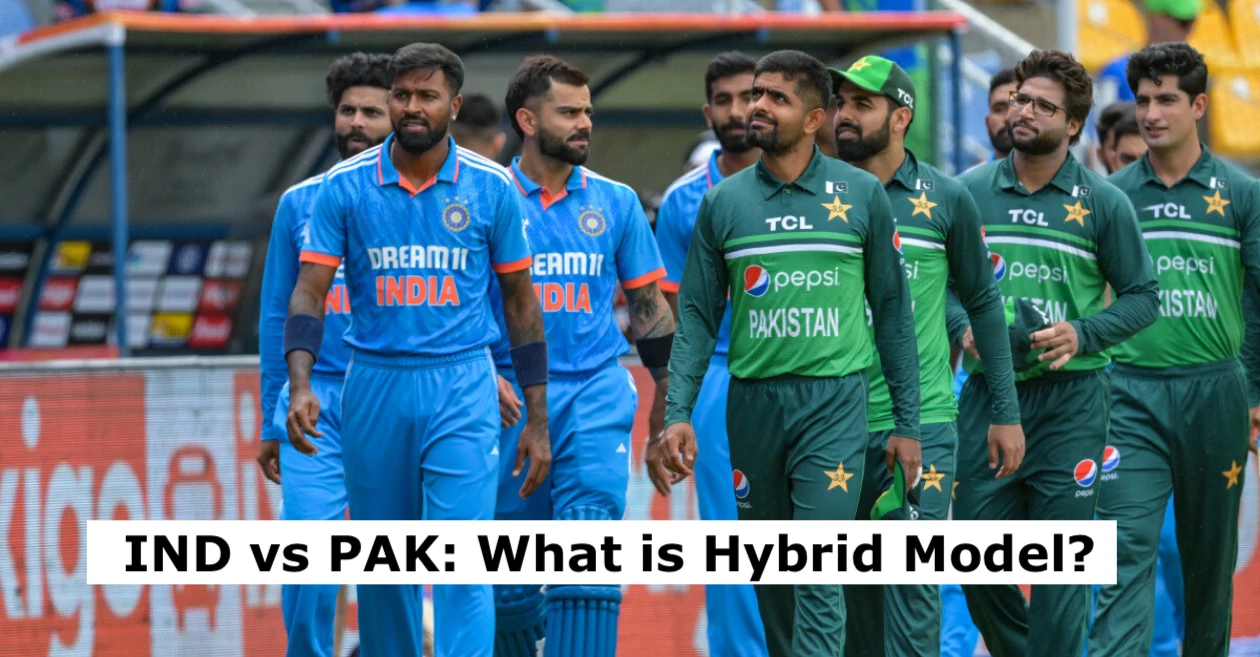Table of Contents
The Champions Trophy 2025 is set to adopt a hybrid hosting model, a development that carries significant implications for the much-anticipated cricket rivalry between India and Pakistan. Under this arrangement, India will play all their matches, including potential knockouts, in Dubai, while the rest of the tournament will be hosted in Pakistan. This compromise, influenced by political tensions and security concerns, follows extensive negotiations between the International Cricket Council (ICC), the Pakistan Cricket Board (PCB), and other stakeholders.
What is the hybrid model?
The hybrid model was devised as a solution to India’s refusal to play in Pakistan, citing security and governmental restrictions. Similar to the arrangement used in the 2023 Asia Cup, India’s fixtures will be moved to a neutral venue, Dubai, while Pakistan retains hosting rights for the remainder of the tournament. This decision reflects ongoing challenges in organizing matches involving these two cricketing giants, whose bilateral cricket ties have been suspended since 2012.
PCB’s stance and demands
Although the PCB has agreed to the hybrid model for the Champions Trophy, it has done so with conditions. The board has demanded that this approach be formalized for all ICC events hosted by India until 2031. This would ensure that Pakistan’s matches in tournaments like the 2026 T20 World Cup and the 2031 ODI World Cup, both hosted by India, are also held at neutral venues.
Additionally, the PCB is advocating for a fairer share of ICC revenue. Currently, Pakistan receives less than 6% of ICC revenue, a stark contrast to India’s 38%. By hosting matches under the hybrid model, the PCB aims to strengthen its case for increased financial compensation and equitable treatment in the cricketing ecosystem.
Also READ: Champions Trophy 2025 – Pakistan captain Mohammad Rizwan gives special invitation to India amidst venue uncertainty
Impact on India-Pakistan rivalry
The hybrid model reshapes the dynamics of the India-Pakistan cricket rivalry, limiting direct engagements to ICC events and Asia Cups. While the neutral venue approach in Dubai ensures the matches proceed, it also diminishes the home advantage for Pakistan.
For fans, the hybrid arrangement presents mixed feelings. Indian fans gain the opportunity to watch their team in a neutral yet accessible location, while Pakistani supporters miss the chance to see their team play India on home soil during such a prestigious tournament.
Fan engagement and logistical challenges
Relocating India’s matches to Dubai will demand intricate logistical planning. Accommodating the fan base, ensuring adequate facilities, and managing tight schedules will be critical. Dubai’s experience in hosting high-profile matches may ease these challenges, but the shift also raises questions about the long-term viability of hybrid hosting as a model for international cricket.
